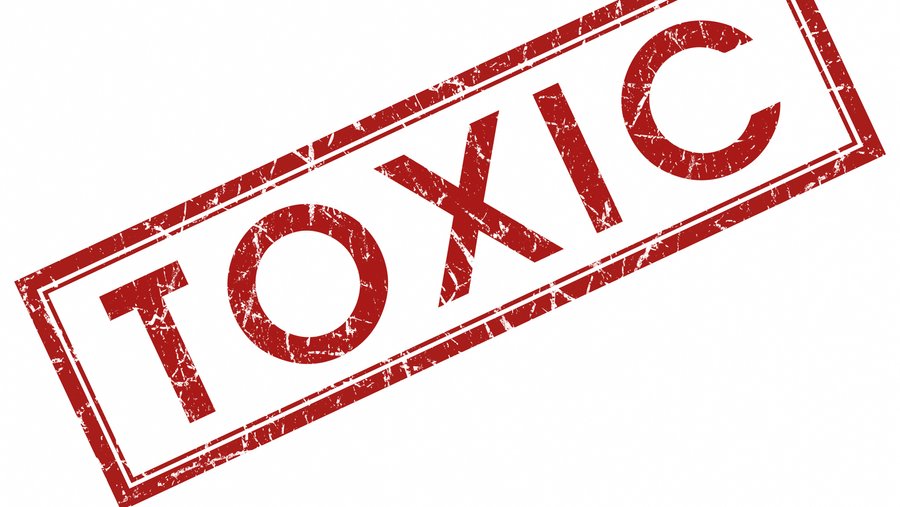Article published in the Philadelphia Business Journal on August 14, 2023.
Many of us have worked with toxic people. This is an update of the Philadelphia Business Journal column I wrote in April 2018 about how to deal with them.
A toxic corporate culture is the result of a CEO setting a tone at the top that tolerates toxic leaders within the organization. An article in the MIT Sloan Management Review reports that a “toxic corporate culture… is 10.4 times more powerful than compensation in predicting a company’s attrition rate compared with its industry.” If your company is experiencing abnormally high attrition, a toxic corporate culture may be the reason.
Individuals who are toxic are not trusted by their peers or direct reports. The actions of everyone they work with have a defensive component, which hinders any group from becoming a high-performance team. Toxic people within the organization don’t realize that they are damaging their personal integrity and reputation, important traits which determine whether people want to work alongside them.
In a March 2020 Fast Company article, headlined “Psychologists have finally figured out why your toxic colleagues climb to the top at work,” Arianne Cohen writes, “The success of toxic people is so common that there’s a phrase for it: the ‘toxic career model.’ A toxic employee schmoozes and charms and politicks, which results in high job performance reviews from superiors. [Their] success revolves around social skills. Peers, meanwhile, often know the ugly truth.” Toxic people being promoted is a result of poor corporate leadership.

Toxic people are good at managing up, so their behavior with their direct reports and peers may not be transparent to their boss. Everyone hopes that sooner or later they will be terminated.
So, what do you do if:
You work for a toxic boss?
Do your job and do it well. Over-communicate to make sure you are both on the same page. You may not be permitted to make many decisions without the boss’s approval. The decisions that you do make may be second-guessed.
You may decide to transfer to another position within the organization or the company, or you may decide to wait until your toxic boss leaves the company or is fired. You need to weigh your alternatives and decide on your personal course of action.
I once worked for a toxic boss who created an oppressive environment within his division. I was promoted and became his peer. Three years later, I was promoted again and became his boss. He continued his toxic behavior, adversely impacting the employees within his division, so I fired him. I replaced him with a much more effective leader and the division’s performance significantly improved.
You work with a toxic co-worker?
Toxic co-workers steal the ideas of others and take credit for group success. When personally advantageous, they throw their co-workers under the bus. They cannot be trusted.
Watch your back. Be proactive in taking individual or group ownership for accomplishments. Develop alliances within the informal organization by helping others be successful. Build political capital within the company.
You have a toxic direct report?
If your company has a hotline to the audit committee of the board, expect employees to report a toxic boss. Your board will ask you, as CEO, what you are going to do about it. Be prepared to respond.
If one of your direct reports exhibits toxic behavior, that individual must be confronted. They will deny the accusation. Expect them to be defensive. They need to know that if their behavior continues, they will part company with the organization.
Every leader needs to know the effectiveness of those who report to them. If you are astute and aware of the dynamics within your organization, you will know if one of your direct reports has a toxic management style.
A more formal approach is through a 360-degree interview process, where information about an individual’s personal effectiveness is obtained through interviews of those within the organization with whom the individual interfaces. There is a school of thought that believes this feedback should only be shared with the individual. I disagree. It also needs to be shared with the individual’s boss and discussed between the two.
You are a toxic individual?
Your behavior will not lead to sustainable success. No one will trust you nor want to work with you. The adage “never burn your bridges” is true. Someday, you may need the help of those who you have hurt.
As the CEO, you should never tolerate a toxic employee. They cause great harm to your organization. If they cannot rapidly change their management style, part company with them.
Stan Silverman is founder of Silverman Leadership and author of “Be Different! The Key to Business and Career Success.” He is also a speaker, advisor and widely read nationally syndicated columnist on leadership. He can be reached at stan@silvermanleadership.com.

